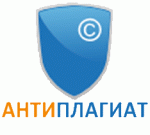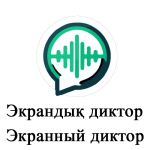-
Speciality Code:
6B04111
Speciality Name:
Project and innovation management
Faculty:
Faculty of Economics and Management
Field of study:
Business and management
- A) Object
- The purpose of this baccalaureate program is training of specialists of an economic profile, competitive in the labor market, demanded by the modern entities and market structures, capable to adapt effectively to dynamically changing social and professional conditions of activities, the main professional functions capable having the high level of readiness for implementation structurally to influence nature and the direction of development of the professional spheres of the activities owning skills of organizing work and a management activity
- Successful graduates should be able to: professionally solve practical questions of economic activity and management organization; determine and take into account in their work the development trends of scientific and technical progress in specific sectors of the economy; to develop innovative programs and projects; form a favorable innovative climate for the adaptation of firms to innovation; to systematize information to obtain an objective assessment of innovative projects; to make decisions when choosing sources and amounts of funding for the development of innovative projects; apply practical methods of justifying innovative solutions in conditions of uncertainty and risk; to analyze the experience of foreign countries and use it in the country; Use domestic and foreign experience in the field of e-management, economy, marketing and management.
- B) Characteristic
- 1.Discipline/subject area
- The main disciplines
- Basic disciplines: Management; Marketing; Organization of business; Finance, Entrepreneurship
- Profiling discipline: Innovation management; Investment management; Business assessment; Analysis of projects; Project Financing; Risk-management of innovation projects
- 2.General information/Specialization
- With the implementation of educational programs specialty 6B04111 «Project and innovation management»
- used credit-modular system of educational process organization, based on a modular principle, curricula, using the credit system and the corresponding educational technology
- 3.Direction
- Social sciences, economy and business
- 4.Pecularities
- Graduates of the educational program "Project and innovation management" are oriented on:
- a management activity at the different levels;
- ability to organize business processes of the company;
- ability to research and solve problems in an entrepreneurship, science, production;
- to develop, introduce and possess skills of management of innovative activity.
- C) Employment and further training
- 1.Employment
- Business structures, industrial production, organizations and firms of various patterns of ownership, state bodies, financial organizations, project and research institutions, research and production, educational institutions.
- 2.Further training
- Master degree 6М050700 «Management»
- D) Style of education
- 1.Approaches to learning and teaching
- The educational process is widely used innovative forms of employment (business games, exit occupations, case studies, field sessions, debates, round tables, discussions, review of literature, individual and group projects), the invitation of practical workers to holding lectures, seminars, master classes is also provided
- 2.Methods of assessment
- Rating control; intermediate certification (testing, oral examination, written examination, writing of the essay, protection of projects); protection of reports on passing educational, production, predegree practician; final assessment (state exam, protection of the thesis)
- E) Program competence
- 1.General competence: The program conforms to requirements of the State obligatory standard of education "The higher education. Bachelor degree." for quality assurance of the academic programs at the first level of a cycle.
- RC 1 – To be able to perform collection and interpretation of scientific and practical, statistical and analytical information for creation of the analysis. RC 2 – to Seize methodology and a technique of the discipline "management" promoting to knowledge by future specialists in the field of management, to own the main categories of the studied discipline; to provide information in various forms of messages, to cooperate and work in group, to discuss and defend the line item, to make decisions. RC 3 – to be able to apply theoretical knowledge in practical activities, to analyze and estimate the decisions applied by the state to regulation of economic processes. RC 4 - to be able to put theoretical knowledge into practice and to understand purpose of projects and their role in the solution of professional tasks. To develop arguments and to make decisions in the field of project management, by means of search, collection, the analysis and systematization. RC 5 – to Know methods and methodology of process of production organization at the entity; to be able to analyze and plan production processes; to be able to make the choice of the effective strategic solution at the entity; RC 6 – to know traditions and culture of the people of Kazakhstan; to be tolerant to traditions, culture of other people of the world; RC 7 – to know tendencies of social development of society; to be able to be guided adequately in various social situations; RC 8 – to be capable to work in team, it is correct to argue the point of view, to propose new solutions; to be able to reach compromise, to correlate the opinion to opinion of collective: to aim at professional and personal growth; RC 9 – to possess bases of economic knowledge, to have scientific ideas of management, marketing, finance and so-called; nobility and understand the purposes and methods of state regulation of economy, a role of a public sector in economy.
- 2.Special (professional) competence:
- PC 1 - To know the Laws regulating investing activities in various forms; general principles and methods of reasons for investments into real production sector. PC 2 - Independently to purchase and to creatively use new knowledge of the theory and practice of production management. PC 3 – to be able to perform collection and interpretation of scientific and practical, statistical and analytical information for creation of the analysis. PC 4 - to Seize theoretical knowledge of an economic safety of the country in modern conditions of the economic relations. PC 5 – to be able to apply theoretical knowledge in practical activities during creation, functioning of subjects of small, medium and large business. PC 6 - to be able to perform collection, the analysis, interpretation of information for development of management decisions taking into account production, social, economic purposes; to be able to apply theoretical knowledge in practical activities during creation, functioning of subjects of small, medium and large business; in case of interaction of subjects of business with customs, tax and other participants of a business environment; when holding liquidating and rehabilitation procedures. PC 7 - to be able to put theoretical knowledge into practice in the field of personnel management of the organization. PC 8 - to be able to use time as the tool of a management activity in efficiency of the organization. PC 9 - to be able to apply theoretical knowledge in practical activities, to analyze and estimate the decisions applied by the state to regulation of economic processes. PC 10 - to develop arguments and to make decisions in the field of project management, by means of search, collection, the analysis and systematization. PC 11 - to be able to apply theoretical knowledge in the field of ethics, cultures of behavior in society, oratory and management in practical activities. PC 12 – to use methods of forming and control of management decisions; to be able to conduct practical researches, the analysis of problem situations, developments of offers and recommendations about increase in efficiency of a management activity. PC 13 - to be able to analyze and plan production processes; to be able to make the choice of the effective strategic solution at the entity. PC 14 - the nobility and to apply functions and innovation management methods on micro and macrolevel; to be able to carry out an efficiency evaluation of innovative projects and risk management methods. PC 15 - to show knowledge and understanding of the fundamental principles of bankruptcy and sanitation of the entity in the conditions of forming of market infrastructure. PC 16 - to build the argumentation and proofs through search, collection, the analysis, systematization and interpretation of information taking into account social, ethical and scientific reasons; to be able to provide information in different forms of messages, to cooperate and work freely in group, to discuss and defend the line item, to make decisions; to use methods of forming and control of management decisions. PC 17 - to know skills of development of own recommendations about development of infrastructure of corporate social liability necessary for practical work of the specialists who are engaged in implementation of social projects. PC 18 - to be able to estimate personal merits and demerits critically; realizes the social importance of the future profession, to have skills of independent job search, passing of an interview, interview; it is capable to perform effectively managerial functions in the multicultural environment. PC 19 - to be able to put into practice different types of motivation and methods of remuneration of workers according to their psychological types; to be able to estimate critically merits and demerits in the existing behavior of the organization; to analyze and create an organization culture. PC 20 - can apply the knowledge and understanding when carrying out a practical research, the analysis of problem situations, developments of offers and recommendations about increase in efficiency of a management activity.
- F) A complete list of results for this training program
- In the context of student's professional practice, in work in the organization, and also with the client, graduates can show a capability to the following: initiative, communicativeness, economic thinking and logic, organizational capabilities, analytical abilities, leadership, ethics, quality orientation and on the consumer
| Program degree: Bachelor of economy and business For specialty 6B04111 «Project and innovation management» | |
|---|---|
| Degree and duration | Single degree (one university) (220 ECTS – credits / 129 kaz.credits) |
| Educational institution | Karaganda Economic University of Kazpotrebsoyuz |
| Accreditation | Independent Kazakh Agency for Quality Assurance of Education (IQAA)http://nkaoko.kz/ |
| Duration | This program is approved by University for a period of 4 years for the persons receiving degree at university since 2018 |
| Level | QF for the EHEA (Qualifications Framework for the European Higher Education Area) 1 cycle; EQF (European Qualifications Framework) level 6; NQF (National Qualifications Frame): Level 6 |






